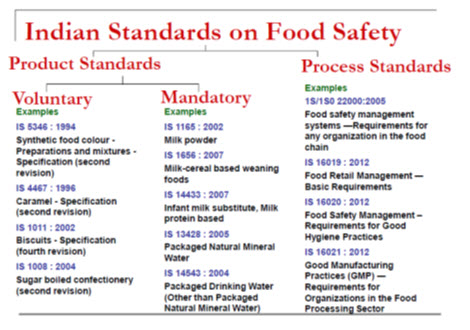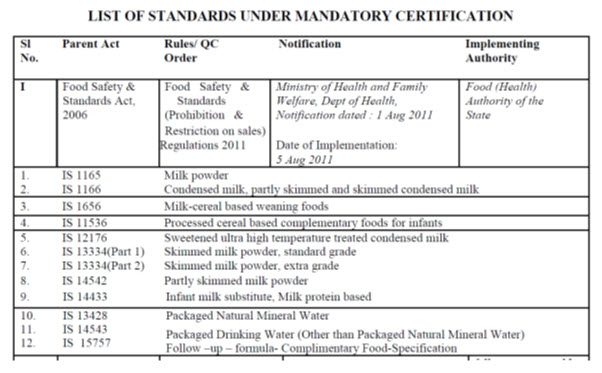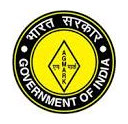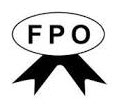Site pages
Current course
Participants
General
Module- 1 Engineering Properties of Biological Mat...
Module- 2 Physical Properties of Biomaterials
Module- 3 Engineering Properties
Module- 4 Rheological Properties of Biomaterials
Module- 5 Food Quality
Module- 6 Food Sampling
Module- 7 Sensory quality
Module 8. Quality Control and Management
Module 9. Food Laws
Module 10. Standards and regulations in food quali...
Lesson 32. Sanitation in food industry
Lesson 28. NATIONAL FOOD LAWS ( BIS, AGMARK, FPO, Consumer Protection Act)
28.1 Introduction
Food may be contaminated or adulterated and may injurious to health due to various reasons. It is essential to set the minimum limits of the desirable characteristics required and the maximum limits of the undesirable components.
Food Laws are for the following reasons:
To maintain the quality of the food produced in the country.
To prevent exploitation of the consumers by the sellers.
To safeguard the health of the consumers.
To establish criteria for quality of the food products
Most common standards are :
Legal Standards: These are established by federal, central, state or municipal agencies and are generally mandatory. These are set up by the law or through regulation. They generally concerned with freedom from adulteration.
Company or Voluntary Standards: These are established by various segments of the food industry. These standards generally represent consumer image and become symbol of product quality. These are used by private firms or supermarkets.
Industry Standards: These standards are established by an organizational group to maintain the quality of the given commodity. These standards become effective by pressure where other legal standards are not involved.
Consumer or Grade Standards: These standards represent consumer's requirements of the product and generally based on the experience of the industry for consumers.
28.2 Bureau of Indian Standards (BIS):

BIS certification scheme is voluntary and aims at providing quality, safety and dependability to the ultimate consumer. Presence of certification mark known as Standard Mark on a product is an assurance of conformity to specifications The activities of Bureau of Indian Standards (BIS) are formation of Indian Standards in the processed food sector and the implementation of standards through promotion, voluntary and third party certification systems. In general these standards cover raw materials and their quality parameters, hygienic conditions under which products are manufactured and packaging and labeling requirements. Manufacturers complying with standards laid down by the BIS can obtain the ISI Mark that can be exhibited on product packages. These standards have higher quality specifications than those prescribed under AGMARK and FSSAI.
The BIS has laid down specification for mineral water and packaged drinking water and is the licensing authority for the manufacture of mineral water and packaged drinking water in India. IS Standards have been laid down for fruit and vegetable products, spices and condiments, animal products and processed foods. The products are checked for quality by the BIS in their own network of testing laboratories or in several public and private laboratories recognized by them. Under BIS many of the standards are laid down based upon ISO (International Organization for Standardization) standards which is a worldwide federation of National Standard Bodies.
28.2.1 Constitution of the Bureau: The Bureau consist members such as the Minister in charge of the Ministry, Minister of State, the Director-General of the Bureau, persons representing the Ministries, state Governments, recognized consumer organizations, farmers, industry and trade, research institutions, technical, educational and professional organizations etc.
28.2.2 Powers and Functions of the Bureau
28.2.2.1 Establishment, Publication and Promotion of Indian Standards : For the purpose of formulation of Indian Standards in respect of articles or processes, technical committees of experts are constituted. Such committees may include Division Councils, Sectional Committees, Sub-committees and Panels and each of these councils have specified functions .
28.2.2.2 Procedure for Establishment of Indian Standards: Any Ministry of Central or State Government, consumer organizations, industrial units, industry-associations, professional bodies, can submit proposals to the Bureau for establishing a standard or for revising, amending, a standard by making a request in writing. Division Council concerned will assign the task of formulating the standard to an appropriate Technical Committee. Later a draft standard prepared and duly approved by a Committee shall be issued and widely circulated for a period of not less than one month amongst the various interests concerned for critical review and suggestions for improvement. The appropriate Technical Committee shall thereafter finalize the draft standard giving due consideration to the comments that may be received. The draft standard shall be submitted to the Chairman of the Division Council concerned for adoption. All established standards shall be reviewed periodically, at least once in five years, to determine the need for revision or withdrawal. Standards which there is need to revise or amendment shall be reaffirmed.

28.2.2.3 Grant of License: Manufacturing units can apply for BIS license on a prescribed form along with application fee and other documents such as location map of factory list of manufacturing and testing equipments, flow charts of the process, details of the technical staff etc. BIS office will do a preliminary inspection verify all documents and process. The product samples are drawn and sent for analysis at BIS certified lab. After satisfactory inspection and sample report of the product, license is granted 1 to 2 years which can renewed periodically.
28.2.2.4 Inspection : The certified units are inspected by inspecting officers. The may be done at manufacturing place, dispatch place or at the place where it is used. At manufacturing place the inspection will also be for the QA systems, verification and validation. The Bureau shall designate such of the officers of the Bureau as Inspecting Officers
28.2.2.5 STOP Marking: If there is evidence that the product is not as per the conforming standards and agreed clauses, the licensee will be directed to stop marking. The reasons can be Non conformance of products at manufacturing place or at market place, Non implementation of Scheme of Testing of the products, Non availability of testing staff , Significant modification of plant and machinery with out informing BIS, Relocation of plant and machinery, Prolonged closure of the unit, Marking non conformed product, Marking standard mark other than that are included in the license. The licensee can resume only after re inspection and satisfactory compliance.

28.3 AGMARK

The word Agmark is derived from Agricultural Marketing. The DMI under the Department of Agriculture and Co-operation in the Ministry of Agriculture enforces the Agricultural Products (Grading and Marketing) Act 1937. Under this Act Grade standards are prescribed for agricultural and allied commodities. Agmark grading means grading of an article in accordance with grade/standards prescribed under the provisions of the act. These are known as AGMARK standards. Grading under the provision of this Act is voluntary. Any person or body of persons desirous of being authorized to grade and mark an article under the provisions of the act shall apply to the agricultural marketing advisor or any other officer of the Central Government or State Government authorized by Agricultural Marketing Advisor. Manufacturers who comply with standard laid down by DMI are allowed to use "AGMARK" labels on their products
The grade designation marks shall be applied only to the articles mentioned in the certificate of authorization during the validity period. The certificate of authorization is issued by agricultural marketing advisor or any other officer of the central or state government authorized by the Agricultural Marketing Advisor. The grade designation characteristics vary from product to product. The quality of the product is determined with reference to the size, variety, weight, color, moisture, fat content and other factors are taken in to account. It covers quality assurances of unprocessed, semi processed and processed agricultural commodities. Blended edible vegetable oils and fat spread are compulsorily required to be certified under Agmark.
The inspecting officer shall analyze the sample for quality factors as laid down in grading and marketing rules of the specific commodity in respect of produce. The inspecting officer shall also ensure that all the food article graded and certified under Agmark shall satisfy the mandatory requirements laid down under PFA rules. The rules for affixation of AGMARK labels, method of packing and marking, check sampling and certificate of grading rules are also given under this act.
28.3.1 Salient features of Agmark standard:
(1) Quality standards for Agricultural commodities are framed based on their intrinsic quality.
(2) Food safety factors are being incorporated in the standards to compete in world trade.
(3) Standards are being harmonized with international standards keeping in view the WTO requirements.
(4) Check is kept on the quality of certified products through 23 laboratories and 43 offices spread all over the country
The grades incorporated are grades 1, 2, 3 and 4 or special, good, fair and ordinary.
Agmark products are subjected to continuous inspection. The certificate of “Authorization” is granted only to those in the trade having adequate experience and standing in the market. The staff of the DMI or of the state Government is generally present at the time of selection of goods, their processing, grading and packing before applying the appropriate AGMARK labels.
Products available under AGMARK are pulses, wheat products, vegetable oils, ground spices, whole spices, milk products, honey, compounded asafetida, rice, tapioca sago, seedless tamarind and gram flour; grading of these commodities is voluntary. On the other hand grading of commodities like tobacco, walnut, spices, basmati rice, essential oils, onion, potatoes are meant for export is compulsory under AGMARK.
The Directorate of marketing and inspection of central government has 21 laboratories and 50 sub offices spread all over the country. The central AGMARK laboratory at Nagpur continuously carries out research and development works in this field.
28.4 FRUIT PRODUCTS ORDER (FPO) 1955

Constituted under Essential Commodities Act it is mandatory for all manufacturers of Fruit and Vegetable Products to obtain a licence under FPO. The act is implemented by the Food Safety and Standards Authority of India through Directorate of Fruit & Veg. Processing at its Regional Offices.
The Fruit Product Order (FPO) lays down statutory minimum standards in respect of the quality of various fruits and vegetable products and processing facilities at manufacture, storage and sale. The Agricultural marketing Advisor is authorized by law to issue a license for manufacturing fruits and vegetable products, after due inspection of the factory for hygiene, sanitation and quality of formulation. Periodic inspection by Government inspectors in establishments is carried out to ensure conformity of standards by processors. Licenser is empowered to put the FPO specification mark on the product. The products covered in FPO include, fruit juice, pulp concentrate, squashes, cordials, crush, fruit syrups, nectar, aerated water containing fruit juice or pulp and read to serve beverages etc., Depending on their quality the products are grade in four categories as ordinary, fair, good and special. The FPO specifications cover list of constituents, a method of presentation permissible colors in the preparation and also minimum quality requirement of the product. An expert committee known as the Central Food Product Advisory Committee deals with all matters relating to the FPO.
FPO also lays down specific requirements in regard to the following:
Containers and labeling requirement
Limits of poisonous metals in fruit products
List of permissible harmless food colors
Limits for permitted preservatives in fruit products
Other permitted additives
28.5 Consumer Protection Act 1986:
Government of India has accorded a very high priority to the consumer protection programme. Ministry of food and Consumer Affairs, Department of Consumer Affairs has been designated as the Nodal Department to deal with the area of consumer protection. Since 1986, the department is taking a number of measures to promote a strong and broad based consumer movement in the country. The main objective of this Act is to provide better protection for the consumer in terms of quality of the product he buys. Unlike the existing laws which are preventive in nature, the provisions of this Act are compensatory in nature. This Act is intended to provide simple, speedy and inexpensive redressal to the consumer's grievance and relief of specific nature. The act has been amended in 1993 both to extend its coverage and scope and to enhance the powers of redressal machinery.